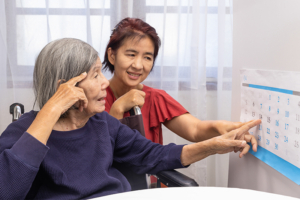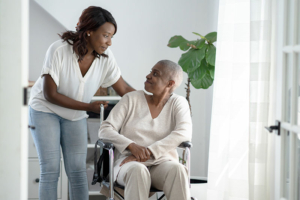Why It’s So Important to Involve Your Parents in Decluttering Their Home

There are several key reasons to involve your parents in decluttering their home.
You have finally made a decision to bite the bullet and start working on downsizing and decluttering your elderly parents’ home. As you begin sorting through the attic, you discover a box of old toys, stacks of family photos, a collection of forgotten letters. Each item holds a story, a little bit of history, and a flood of memories.
Decluttering is really so much more than simply a housekeeping chore. It may be an unforgettable, emotionally-charged occasion. It’s crucial to involve your parents in decluttering their home, allowing them time to reminisce and rediscover the stories behind the treasures.
Why Declutter?
In addition to the sentimental, decluttering your parents’ home is essential for many reasons:
- Safety: Reducing clutter decreases the possibility of falls and injuries, making the home safer for your parents.
- Organization: A decluttered space is easier to navigate and maintain, that could reduce stress both for you and your parents.
- Emotional Well-being: Engaging your parents in the decluttering process can help them feel more in command of their environment.
Start With a Plan
Before diving into the decluttering process, it is essential to have a plan. Talk about the goal with your parents and set clear, practical objectives. Decide which areas of the house to target first and establish a timeline. Breaking down the process into smaller, manageable tasks can make it less daunting for everyone involved.
Involve Your Parents in Decluttering Their Home as Much as Possible
Involving your loved ones in the decluttering process is very important. Here are a few strategies to ensure their participation is positive and productive:
- Respect Their Sentiments: Recognize that your parents may have emotional attachments to their belongings. Approach the process with patience and empathy.
- Ask to Hear the Stories: Encourage your parents to share the stories behind their items. This could be a meaningful way to preserve memories and make the process easier.
- Make Decisions Together: Work together to determine what things to keep, donate, or discard. This collaborative approach ensures your loved ones feel involved and respected.
Decluttering Tips
Here are some practical suggestions to help you declutter effectively:
- Digitize Memories: Consider scanning old photos and documents to create digital copies, freeing up physical space while protecting important memories.
- Start Small: Start with a small, manageable area, like a single room or closet. This can help build momentum and make the process less intimidating.
- Try Using the “One-Year Rule”: If something was not used in the past year, it could be time to let it go.
- Plan Regular Breaks: Decluttering can be emotionally and physically demanding. Take regular breaks to rest and reflect.
Let Us Help
Ready to start decluttering and create a safer, more organized home for your parents? Responsive Home Care, serving Fort Lauderdale, Hollywood, Lighthouse Point, and throughout Broward County, is here to help. Call us today at 954-486-6400 to learn more about our senior care services and how they can play a role while you tackle the task of decluttering.











